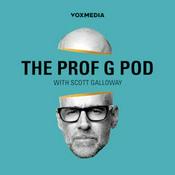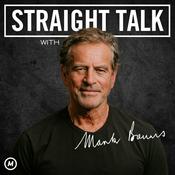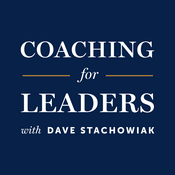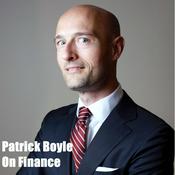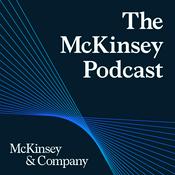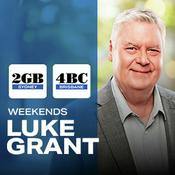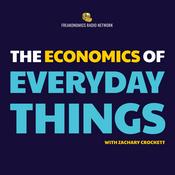41 episodes
- The Ripple Effects of Underdeveloped Leadership (Part 2)
In Part 2 of this conversation, we go deeper into what really happens when leadership development stalls—and why the consequences rarely stay contained.
Most leaders don't realize this until it's already shaping their teams: what goes undeveloped internally begins to ripple outward. Emotional intelligence gaps, unregulated stress, and inconsistent leadership behaviors quietly influence communication, trust, psychological safety, and culture.
In this episode, we explore two critical ripple effects of underdeveloped leadership:
Emotional Intelligence Gaps When leaders lack self-awareness and emotional regulation, teams feel it—often as tension, hesitation, or silence. You'll learn why leaders act as either a thermometer (reacting to the room) or a thermostat (setting the temperature), and how your internal state has more influence than you think.
Cultural Drift Culture doesn't collapse overnight—it drifts. Subtle inconsistencies in standards, follow-through, and communication slowly reshape expectations and norms. Over time, this creates heaviness, misalignment, and disengagement that leaders often misdiagnose as "people problems."
This episode is a call to look upstream—to understand that leadership is not just about strategy and results, but about presence, consistency, and internal alignment. Because leadership doesn't stay personal. It spreads.
If you're a leader who wants to create healthier teams, stronger culture, and sustainable impact—this conversation will help you see what's happening beneath the surface, and where real change begins.
🔥 Powerful Quotes from the Episode
"We cannot give to other people what we first do not have internally."
"Leadership doesn't stay contained. What you haven't developed yet is already showing up around you."
"You are either a thermometer reacting to the room—or a thermostat setting the temperature."
"Culture doesn't collapse overnight. It drifts when leaders stop paying attention."
"If the room feels heavy, it's worth looking upstream."
If this episode resonated with your current leadership season:
👉 Follow or subscribe to the MPWR Podcast for executive-level conversations on growth, leadership, and sustainable performance.
If this episode gave you language for something you've been experiencing — leave a review on Apple to help other leaders find these conversations when they need them most.
Eric has released a new book that takes this conversation even further:
👉 Upgrade Your Leadership: 8 Foundational Tools to Overcome Drama, Build Trust, and Thrive Under Pressure
This book is more than a leadership manual; it's a blueprint for transformation. Eric shows how to:
Identify the drama cycles that drain energy and derail teams.
Build trust intentionally rather than assuming it will emerge on its own.
Thrive under pressure by upgrading the internal system that drives every leadership decision.
And yes—set boundaries that strengthen leadership rather than weaken it.
Are you ready to unlock your full potential and lead with purpose, clarity, and conviction?
The MPWR Podcast, hosted by Eric Pfeiffer, CEO of MPWR Coaching, is your go-to space for transformational conversations, powerful insights, and practical strategies to help you step into the next level of your leadership journey. Whether you're scaling your business, seeking greater alignment in life, or stepping into your calling—this podcast will challenge, inspire, and empower you.
Want more tools to accelerate your growth? Head over to mpwrcoaching.com where you'll find free resources, game-changing books, and programs designed to elevate your mindset, build resilience, and transform the way you lead—from the inside out.
🔥 Subscribe to the MPWR Podcast on your favorite platform. 📲 Follow Eric Pfeiffer across social media (links available on the website). 🌐 Access our free mini course here!
🔗 Check out our Leadership Framework System
Want more?
🎧 Enjoyed today's episode? If this conversation challenged or inspired you, we'd love for you to help us spread the impact.
Share it with a fellow leader, subscribe so you never miss an episode, and—if you got value—leave us a quick review on Apple!
Your reviews help more leaders discover the MPWR Podcast and step into the influence they were made for.
And remember— Be the leader YOU want to follow. See you next time. #40: How Underdeveloped Leadership Spreads: From Your Inner World to Company Culture— Part 1
05/01/2026 | 44 mins.The Ripple Effects of Underdeveloped Leadership
Most leadership breakdowns don't begin with obvious mistakes. They begin quietly—inside the leader.
In this episode of MPWR, we explore a reality many leaders don't recognize until it's already shaping their culture, communication, and results: the ripple effects of underdeveloped leadership.
Last week's conversation focused on what it feels like when leaders get stuck. This episode takes that insight further by examining what happens next—when internal tension, unaddressed growth edges, or outdated leadership strategies begin to move outward into the organization. These ripples often show up as communication breakdowns, lack of trust, unclear expectations, micromanagement, or teams carrying responsibility without true authority.
The challenge? Most leaders hope their internal struggles remain personal. But leadership doesn't work that way.
What you haven't yet developed—emotionally, strategically, or structurally—doesn't stay contained. It quietly defines how decisions are made, how problems are solved, and how safe people feel to take ownership.
This episode unpacks how success itself can expose underdeveloped leadership muscles. The very strategies that helped you reach one level of growth may no longer sustain the next. Without intentional development, leaders often find themselves compensating—working harder, tightening control, or lowering standards—while teams feel the downstream effects.
You'll hear practical insights on:
How subtle leadership blind spots shape culture over time
Why teams begin to "fill the gaps" when leaders don't grow
The difference between delegation and dumping responsibility
Why clarity—not pressure—is the true leadership stabilizer
How leaders can stop ripple effects before they erode trust
If you've ever sensed friction in your organization that you couldn't quite explain—or noticed your team reacting before you could name the cause—this conversation will help you connect the dots.
Because leadership isn't just what you do. It's what you've developed the capacity to carry.
Powerful Quotes
"The ripple effect begins subtly and slowly the whole team starts to feel what the leader wasn't able to identify early on."
"Most leaders hope their internal struggles stay personal, but leadership doesn't work that way. Those ripples impact everything around you."
"Leaders define culture; whether they're intentional about it or not."
If this episode resonated with your current leadership season:
👉 Follow or subscribe to the MPWR Podcast for executive-level conversations on growth, leadership, and sustainable performance.
If this episode gave you language for something you've been experiencing — leave a review on Apple to help other leaders find these conversations when they need them most.
Eric has released a new book that takes this conversation even further:
👉 Upgrade Your Leadership: 8 Foundational Tools to Overcome Drama, Build Trust, and Thrive Under Pressure
This book is more than a leadership manual; it's a blueprint for transformation. Eric shows how to:
Identify the drama cycles that drain energy and derail teams.
Build trust intentionally rather than assuming it will emerge on its own.
Thrive under pressure by upgrading the internal system that drives every leadership decision.
And yes—set boundaries that strengthen leadership rather than weaken it.
Are you ready to unlock your full potential and lead with purpose, clarity, and conviction?
The MPWR Podcast, hosted by Eric Pfeiffer, CEO of MPWR Coaching, is your go-to space for transformational conversations, powerful insights, and practical strategies to help you step into the next level of your leadership journey. Whether you're scaling your business, seeking greater alignment in life, or stepping into your calling—this podcast will challenge, inspire, and empower you.
Want more tools to accelerate your growth? Head over to mpwrcoaching.com where you'll find free resources, game-changing books, and programs designed to elevate your mindset, build resilience, and transform the way you lead—from the inside out.
🔥 Subscribe to the MPWR Podcast on your favorite platform. 📲 Follow Eric Pfeiffer across social media (links available on the website). 🌐 Access our free mini course here!
🔗 Check out our Leadership Framework System
Want more?
🎧 Enjoyed today's episode? If this conversation challenged or inspired you, we'd love for you to help us spread the impact.
Share it with a fellow leader, subscribe so you never miss an episode, and—if you got value—leave us a quick review on Apple!
Your reviews help more leaders discover the MPWR Podcast and step into the influence they were made for.
And remember— Be the leader YOU want to follow. See you next time.- Why Leaders Feel Stuck (And Why Pushing Harder Makes It Worse)
There's a moment in leadership most leaders don't prepare for.
You're experienced. Capable. Proven. The strategy is sound. The team is strong. And yet, progress feels heavier than it should.
What once moved quickly now requires more effort. Decisions take longer. Momentum feels harder to sustain; not because you've lost discipline or drive, but because something deeper is shifting.
For high-level leaders, the instinct is almost automatic: push harder. Apply more pressure. Increase output. Demand more from yourself and your team.
In this episode of the MPWR Podcast, we examine why that instinct often backfires.
This conversation explores why leaders feel stuck not when they're failing but when they've outgrown the way they've been operating. At this level, effort alone no longer creates breakthroughs. Growth requires expanded capacity, deeper awareness, and a recalibration of how leadership is embodied.
You'll learn why:
High performers hit invisible ceilings effort can't break
Doing more can actually create more resistance
Stagnation is often a signal of readiness — not weakness
This episode is for CEOs and senior leaders navigating the quiet, internal transitions that rarely make it into boardrooms but shape everything that follows.
If you've been asking yourself "Why doesn't this work the way it used to?" — this conversation will help you see what's actually happening, and what to do next.
💬 Standout Quotes from the Episode
"Feeling stuck isn't failure, it's feedback."
"Effort can't fix a development problem."
"Most leaders don't stall because they lack discipline. They stall because the season requires a different kind of growth."
"When what used to work stops working, it's not a breakdown. It's a transition."
"Pressure doesn't create expansion. Capacity does."
If this episode resonated with your current leadership season:
👉 Follow or subscribe to the MPWR Podcast for executive-level conversations on growth, leadership, and sustainable performance.
If this episode gave you language for something you've been experiencing — leave a review on Apple to help other leaders find these conversations when they need them most.
Eric has released a new book that takes this conversation even further:
👉 Upgrade Your Leadership: 8 Foundational Tools to Overcome Drama, Build Trust, and Thrive Under Pressure
This book is more than a leadership manual; it's a blueprint for transformation. Eric shows how to:
Identify the drama cycles that drain energy and derail teams.
Build trust intentionally rather than assuming it will emerge on its own.
Thrive under pressure by upgrading the internal system that drives every leadership decision.
And yes—set boundaries that strengthen leadership rather than weaken it.
Are you ready to unlock your full potential and lead with purpose, clarity, and conviction?
The MPWR Podcast, hosted by Eric Pfeiffer, CEO of MPWR Coaching, is your go-to space for transformational conversations, powerful insights, and practical strategies to help you step into the next level of your leadership journey. Whether you're scaling your business, seeking greater alignment in life, or stepping into your calling—this podcast will challenge, inspire, and empower you.
Want more tools to accelerate your growth? Head over to mpwrcoaching.com where you'll find free resources, game-changing books, and programs designed to elevate your mindset, build resilience, and transform the way you lead—from the inside out.
🔥 Subscribe to the MPWR Podcast on your favorite platform. 📲 Follow Eric Pfeiffer across social media (links available on the website). 🌐 Access our free mini course here!
🔗 Check out our Leadership Framework System
Want more?
🎧 Enjoyed today's episode? If this conversation challenged or inspired you, we'd love for you to help us spread the impact.
Share it with a fellow leader, subscribe so you never miss an episode, and—if you got value—leave us a quick review on Apple!
Your reviews help more leaders discover the MPWR Podcast and step into the influence they were made for.
And remember— Be the leader YOU want to follow. See you next time. #38: We Promote People Because They Perform But Rarely Prepare Them to Lead (And How to Fix It)
22/12/2025 | 39 mins.We promote people because they perform, but we rarely prepare them to lead.
There's a quiet epidemic happening inside organizations—and it isn't burnout, turnover, or lack of talent. It's underdeveloped leadership.
In this episode of the MPWR Podcast, we unpack why high performers are so often promoted into leadership roles without the skills, tools, or support required to lead well—and why this gap doesn't always show up as failure right away. Instead, it hides behind busyness, temporary results, and "getting by" until pressure exposes the cracks.
You'll hear why experience alone doesn't create leadership capacity, how underdeveloped leadership fuels micromanagement, exhaustion, imposter syndrome, and unhealthy culture, and why so many leaders feel like they're constantly trying harder instead of actually growing. We challenge the myth of the "natural-born leader" and make the case that leadership is not a personality trait—it's a learnable skill set.
This conversation is for leaders who care deeply, feel stretched thin, and suspect there's a better way—but don't know what the next step looks like yet. If you've ever thought, "I should have figured this out by now," this episode will meet you with clarity, compassion, and direction.
Powerful Quotes from the Episode
"We promote people because they perform, but we rarely prepare them to lead."
"Experience doesn't automatically make you better. It just makes you familiar."
"Once you stop trying to prove yourself and instead commit to intentional development, everything changes."
Takeaway
Pay attention to the leadership challenges that keep repeating. Those pressure points aren't proof that you're failing, they're invitations to grow.
🎯 Next Steps
If this episode resonated, share it with a leader who's carrying more responsibility than they feel equipped for right now.
And if you're ready to go deeper, join us for our next MPWR Masterclass and start building the leadership skills that performance alone can't create.
👉 Save your seat at mpwrcoaching.com/masterclass
Are you ready to unlock your full potential and lead with purpose, clarity, and conviction?
The MPWR Podcast, hosted by Eric Pfeiffer, CEO of MPWR Coaching, is your go-to space for transformational conversations, powerful insights, and practical strategies to help you step into the next level of your leadership journey. Whether you're scaling your business, seeking greater alignment in life, or stepping into your calling—this podcast will challenge, inspire, and empower you.
Want more tools to accelerate your growth? Head over to mpwrcoaching.com where you'll find free resources, game-changing books, and programs designed to elevate your mindset, build resilience, and transform the way you lead—from the inside out.
🔥 Subscribe to the MPWR Podcast on your favorite platform. 📲 Follow Eric Pfeiffer across social media (links available on the website). 🌐 Access our free mini course here!
🔗 Check out our Leadership Framework System
Want more?
🎧 Enjoyed today's episode? If this conversation challenged or inspired you, we'd love for you to help us spread the impact.
Share it with a fellow leader, subscribe so you never miss an episode, and—if you got value—leave us a quick review on Apple!
Your reviews help more leaders discover the MPWR Podcast and step into the influence they were made for.
And remember— Be the leader YOU want to follow. See you next time.#37: Leadership Hot Seat: Eric Answers Your Top Questions About Influence & Culture
15/12/2025 | 52 mins.Executive Q&A: Leading with Trust, Clarity, and Strategic Coaching
In this executive-focused Q&A session, Eric Pfeiffer, CEO of MPWR Coaching, and Dawn Neldon, Director of Content, address some of the most pressing challenges facing today's senior leaders: earning trust, strengthening team alignment, and developing people to perform at a higher level. Together, they deliver an elevated conversation designed for CEOs, founders, and executives who are responsible for driving culture, shaping organizational performance, and leading through complexity.
This episode provides strategic insight for leaders who understand that sustainable performance is created through people—not pressure. Eric and Dawn bring a refined, real-world perspective to leadership development that resonates with C-suite audiences who value clarity, accountability, and measurable impact.
Through practical examples and incisive coaching, they answer key questions such as:
How do I create genuine buy-in at every level of the organization?
What drives sustained performance beyond incentives or directives?
How do I develop leaders who think, act, and take ownership like owners?
How can trust be rebuilt—or established—during periods of change or uncertainty?
Executives will gain actionable frameworks for improving decision-making, elevating communication, and fostering a culture where high performers feel empowered, supported, and aligned with organizational objectives.
Key Themes for Executive Leaders
✔ Strategic trust-building in modern organizations ✔ Coaching as a primary leadership competency ✔ Moving teams from compliance to commitment ✔ Cultivating clarity as a leadership advantage ✔ Transforming individual contributors into accountable leaders
This episode challenges traditional management approaches and instead invites leaders to adopt a more nuanced, human-centered style of influence that strengthens both performance and loyalty.
Three Impactful Quotes From the Episode
"People won't invest discretionary effort until they trust the leader who's asking for it."
"Your clarity becomes the organization's confidence. Leaders set the pace by the certainty they communicate."
"When you stop managing tasks and start developing people, you unlock a level of performance that cannot be forced or incentivized—only inspired."
Why This Episode Matters for Senior Leadership
In an era defined by rapid change, talent shortages, and increased scrutiny on leadership effectiveness, executives cannot rely on outdated playbooks. They need leaders who can coach, empower, and elevate teams with intention and strategic clarity.
This session equips senior leaders with a modern leadership framework grounded in:
Intention over intensity
Clarity over control
Trust over transactional management
Whether you're scaling a high-growth organization, leading through transformation, or strengthening cultural alignment, this episode delivers the strategic insights needed to elevate leadership effectiveness at the highest level.
🎧 Tune in now to MPWR Podcast on your favorite platform
Break the silence. Speak the agreement. Lead with clarity.
Eric has released a new book that takes this conversation even further:
👉 Upgrade Your Leadership: 8 Foundational Tools to Overcome Drama, Build Trust, and Thrive Under Pressure
This book is more than a leadership manual; it's a blueprint for transformation. Eric shows how to:
Identify the drama cycles that drain energy and derail teams.
Build trust intentionally rather than assuming it will emerge on its own.
Thrive under pressure by upgrading the internal system that drives every leadership decision.
And yes—set boundaries that strengthen leadership rather than weaken it.
Are you ready to unlock your full potential and lead with purpose, clarity, and conviction?
The MPWR Podcast, hosted by Eric Pfeiffer, CEO of MPWR Coaching, is your go-to space for transformational conversations, powerful insights, and practical strategies to help you step into the next level of your leadership journey. Whether you're scaling your business, seeking greater alignment in life, or stepping into your calling—this podcast will challenge, inspire, and empower you.
Want more tools to accelerate your growth? Head over to mpwrcoaching.com where you'll find free resources, game-changing books, and programs designed to elevate your mindset, build resilience, and transform the way you lead—from the inside out.
🔥 Subscribe to the MPWR Podcast on your favorite platform. 📲 Follow Eric Pfeiffer across social media (links available on the website). 🌐 Access our free mini course here!
🔗 Check out our Leadership Framework System
Want more?
🎧 Enjoyed today's episode? If this conversation challenged or inspired you, we'd love for you to help us spread the impact.
Share it with a fellow leader, subscribe so you never miss an episode, and—if you got value—leave us a quick review on Apple!
Your reviews help more leaders discover the MPWR Podcast and step into the influence they were made for.
And remember— Be the leader YOU want to follow. See you next time.
More Business podcasts
Trending Business podcasts
About MPWR Podcast | Become The Leader YOU Want To Follow
People don't quit jobs, they quit bad leaders.
We've all been there. Working under a leader who made every day feel like a battle, where communication was lacking, vision was unclear, and pressure felt like a crushing weight rather than a challenge to rise to. But what if you could be the leader who changes that?
The MPWR Podcast is here to help you do just that. Hosted by Eric Pfeiffer, CEO of MPWR Coaching, this podcast is for leaders who want to show up stronger, smarter, and more resilient in an increasingly high-stakes world.
Because let's face it, leadership isn't easy. 83% of companies say leadership development is crucial, yet most leaders are left to figure it out on their own. And when leadership fails, the consequences are massive:
• Toxic cultures
• Disengaged employees
• High turnover and burnout
But when leadership thrives? Everything changes.
• Teams feel empowered and engaged
• Communication is clear and trust is strong
• Productivity and performance soar
Leadership is more than a job, it's a responsibility. And the best leaders? They don't just manage; they inspire. They create environments where people thrive, take ownership, and step into their full potential.
Each week on the MPWR Podcast, we dive deep into real-world strategies, expert insights, and actionable takeaways to help you lead with confidence and clarity, even under pressure. Whether you're an executive, an entrepreneur, or someone striving to lead yourself better, this podcast is for you.
🎧 Listen now and start leading the way you were meant to.
Stay connected with us:
🌐 Learn More: https://MPWRcoaching.com
📩 Contact: [email protected]
Podcast websiteListen to MPWR Podcast | Become The Leader YOU Want To Follow, A Bit of Optimism and many other podcasts from around the world with the radio.net app
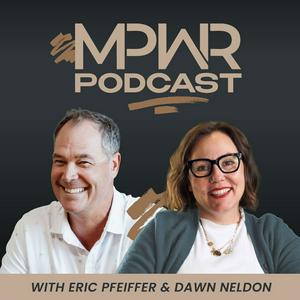
Get the free radio.net app
- Stations and podcasts to bookmark
- Stream via Wi-Fi or Bluetooth
- Supports Carplay & Android Auto
- Many other app features
Get the free radio.net app
- Stations and podcasts to bookmark
- Stream via Wi-Fi or Bluetooth
- Supports Carplay & Android Auto
- Many other app features


MPWR Podcast | Become The Leader YOU Want To Follow
Scan code,
download the app,
start listening.
download the app,
start listening.






